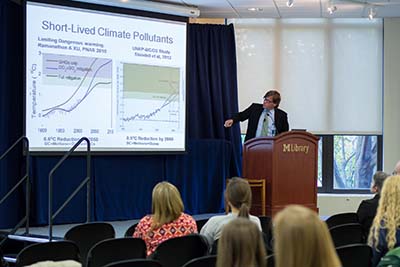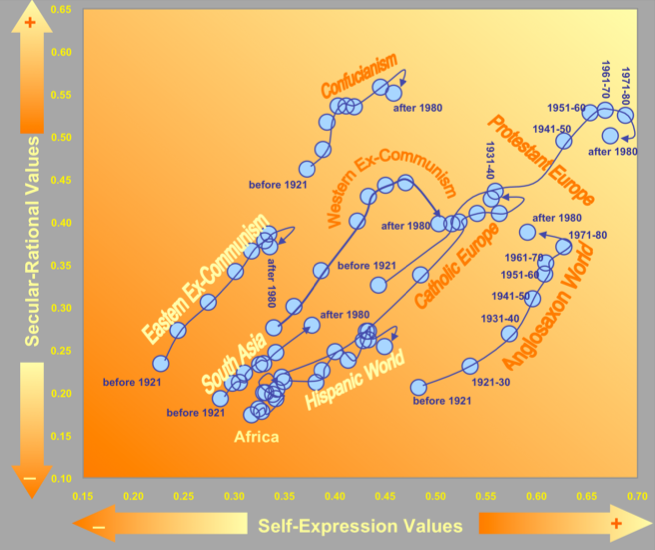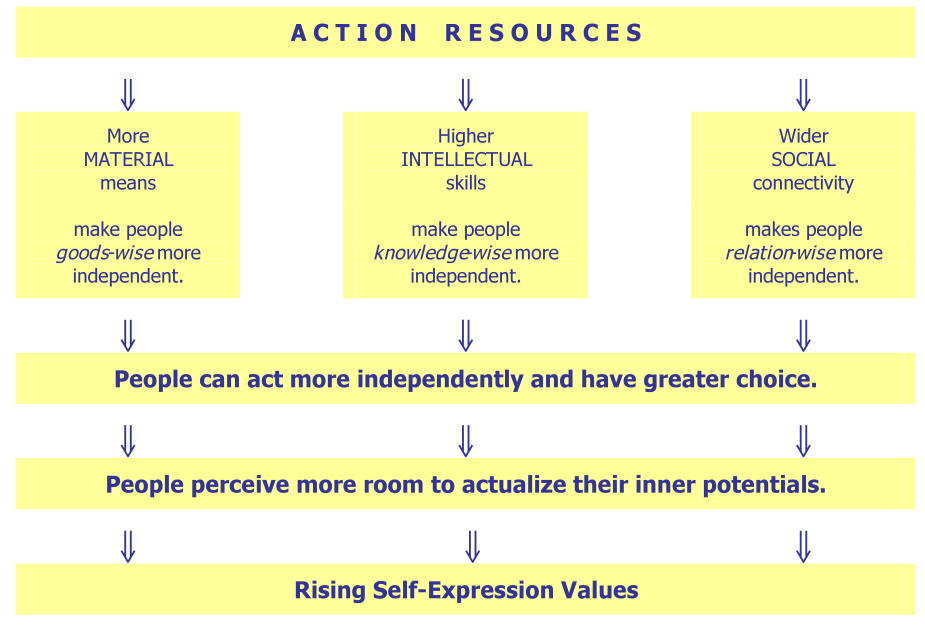Jan 30, 2014 | Elections, International
Post developed by Olivia Avery and Katie Brown in coordination with Ted Brader.

Photo credit: Thinkstock
Political parties work as a way to maximize voting power and consolidate control in the government. This power and influence over a democracy depends on the support of the citizens that vote them into office. Effective political parties want to be able to guide the opinions of their followers. But what kind of parties are the most effective at this persuasion?
A recent study by Center for Political Studies (CPS) researcher and professor of political science Ted Brader – along with Joshua A. Tucker and Dominik Duell of New York University – seeks to answer this question.
The authors hypothesize that three things contribute to party power. The first is longevity, or how long the party has existed. The second is incumbency, or whether the party is currently in power. And the third is ideological clarity, or the consistency of the party’s platform. Brader and colleagues tested the impact of these three factors in three multiparty democracies: Great Britain, Hungary, and Poland.
What did they find? People are more likely to respond to policy cues from (1) older parties, (2) non-incumbents, or opposition parties, and (3) parties with consistent ideology. The effect of the age of the party vanishes when the other two factors are considered.
These results may run counter to long-held beliefs that incumbency and older parties dominate. As the authors conclude, “What matters most is the recent experience with, and current image of, the party, not the reputation or experience that has been built up over the long term.”
Whereas this study examined three countries with multiparty systems, contests in the contemporary United States tend to be limited to two major parties: Democrats and Republicans. While third parties face overwhelming obstacles to gaining power in such a two party system, sometimes they do manage to win select local elections, shift the strategy of major party candidates, or capture attention in an effort to influence the terms of debate. Brader and colleagues’ results suggest that third parties (such as the Green Party or the Reform Party) and perhaps intraparty movements like the Tea Party can have an impact on public opinion even as outsiders, if they maintain a consistent, clear ideological voice.
For more information, please see the article “Which Parties Can Lead Opinion? Experimental Evidence on Partisan Cue Taking in Multiparty Democracies” published in the journal Comparative Political Studies.
Jan 29, 2014 | Foreign Affairs, International, Law
Post developed by Katie Brown.
2013 came in at the fourth hottest on record. Yet, the Alberta Clipper plummeted the nation’s temperatures this week, a return of the polar vortex that descended earlier this month. These extreme weather patterns have renewed debate over climate change.
Recently, the Center for Political Studies (CPS) featured an expert on national agreements around climate change as part of their Harold Jacobson lecture series. Established in 2002 to honor Jacobson, the Jacobson Lecture is an annual talk by leaders in the fields of international organization, international law, foreign policy, and the environment.
This year, CPS welcomed David G. Victor, a professor at the School of International Relations and Director of the Law and Regulation Laboratory at the University of California, San Diego. In his talk entitled, “The Global Climate Crisis: Will International Cooperation be Effective?,” Victor outlined a rather dire situation around international law concerning the climate. Despite the current state of affairs, Victor posited that we are at a turning point.

Photo credit: Eva Menezes
To leverage this turning point effectively, Victor pointed to four key things that can make for more effective international negotiations:
- Create flexible “clubs” instead of global treaties. That is, stop thinking about the climate as a global problem. Instead, set up small groups that take direct responsibility for parts of the problem.
- Celebrate the lower emissions enabled by technological innovation. These advances are fortuitous and promise to keep helping the situation.
- Focus on solidifying and clarifying trade rules.
- Seek small steps in the right direction. Or, as Victor describes it, seek “singles and walks, not homers.”
Victor’s conclusion hits notes of optimism. The last twenty years have not worked, he laments. But the system is headed in the right direction. Following the four steps outlined above will help steer us toward more effective, cooperative climate regulation.
Jan 23, 2014 | Current Events, International, National
Post developed by Katie Brown in coordination with Ronald Inglehart.
Time Magazine’s 2013 cover story by Joel Stein labeled Millennials – the generation born between the early 1980s and the early 2000s – as self-entitled narcissists. That story is one in a slew of articles berating Millennials for a host of issues. But the Time story in particular caused quite a stir, spawning both similar critiques and rebuttals in the mainstream press.
But what are Millenials really about? Center for Political Studies Research Professor Ronald Inglehart is the Founding President of the World Values Survey (WVS). Conducted in waves, the WVS traces values and cultural exchange over time and across the world. WVS data offer insight into the world’s Millenials generation.

The graph above shows where WVS respondents fell on two values scales by birth year, within various groups. Within each group, Millenials are represented by the blue dots for those born after 1980. This evidence from the WVS suggests that the Millennials generation demonstrates higher self-expression than most of the other generations within each group. Greater self-expression values means having more action resources – both material and cognitive. The chart below highlights the chain reaction set off by these action resources.

How can we see this enhanced self-expression in action? In support for environmental protection, tolerance of diversity and out-groups like foreigners and LGBT populations. In valuing political and economic participation. And in emphasizing imagination and tolerance when rearing children. Also accompanying higher self-expression values are a greater sense of subjective well-being and interpersonal trust. These trends bring hope for the future led by the often vilified Millennial generation.
Jan 15, 2014 | Elections, Innovative Methodology, Michigan, National
Developed by Katie Brown in coordination with Arthur Lupia.

Photo credit: Thinkstock
Voters are ignorant and we must fix them. This belief has spawned much political science research and many efforts to inform the “ignorant. ” But what if this premise is false?
In a forthcoming book – The trouble with voters and those who try to fix them – Center for Political Studies (CPS) researcher and professor of political science Arthur Lupia suggests that voters aren’t as ignorant as many fear.
First, it is impossible to know all potentially relevant political information. Lupia presents his own position as a citizen as a case study. To be informed about all legislation that could affect him, Lupia should know about the more than 2,000 laws passed by the United States Senate and signed by the President. He should also know about the 40,000 additional proposed bills. As a resident of Michigan, Lupia should know about the 1,239 proposed bills, 42 concurrent resolutions, 26 joint resolutions, and 174 resolutions from the Michigan House of Representatives, as well as the 884 bills, 25 continuing resolutions, and 19 joint resolutions from the Michigan Senate in 2011 alone. Living in Ann Arbor, Lupia should also know about the many city ordinances passed in recent years. Does he know the gist, let alone the details, of each of these? No. Does he or anyone need to? No.
Second, even if you could know all potentially relevant political information, shortcuts can get you there faster. That is, voters without certain knowledge tend to vote the same as if they possessed that knowledge. Lupia likens this to traffics signals. It is impossible for a driver to know the traffic flows and locations of all vehicles in all directions when approaching an intersection. A traffic light signals the optimal time to go and stop. Voters can therefore seek out signals in a saturated, sometimes chaotic political environment to make informed choices.
So, voters are not crippled by ignorance. What then of those who try to fix voters? Lupia sees fixers as playing an integral role in civic society. But these fixers would benefit from changing their baseline assumption. Voters are not broken. With this paradigm shift in place, fixers could appeal to this group with precision and tact. To this end, Lupia offers the latest from biology and brain science, strategic communication, and marketing to help fixers better deliver their messages.
Lupia summarizes his argument in succinct terms: “From these facts alone, we can draw an important conclusion. When it comes to political information there are two groups of people. One group is almost completely ignorant of almost every detail of almost every law and policy under which they live. The other group is delusional. There is no third group.”
Jan 8, 2014 | International, Profile
Post developed by Katie Brown in coordination with Fatima Ali Hussain Al-Kubaisi.

Photo credit: Thinkstock
Dr. Fatima Ali Hussain Al-Kubaisi grew up in Qatar. After receiving her B.A. in Sociology from Qatar University, she moved to Egypt. At Cairo University, she pursued her M.A. and then Ph.D. in Sociology.
Upon completion of her doctorate, Al-Kubaisi returned to Qatar as Assistant Professor of Sociology at Qatar University. Her work and teaching focus on considering gender and family from sociological perspectives.
Over her lifetime, Al-Kubaisi has witnessed Qatar transform into an extremely rich and developed state thanks to oil. This societal sea change serves as the backdrop of her research. In particular, she has considered whether issues of gender differ in the age 35 and younger crowd.
Al-Kubaisi also considers the role of women and the meaning of motherhood in Qatar. Further enriching her work, Al-Kubaisi serves in a variety of posts: vice president of the Qatar Foundation for Child & Women Protection, 2010-2013 member of the Arabic Network of NGOs, member of the Woman Affairs Committee in the Supreme Council for Family Affairs, and as social expert in family strategy teamwork for the Supreme Council for Family Affairs.
For the 2013-2014 school year, Al-Kubaisi is a visiting scholar in the Center for Political Studies (CPS) at the University of Michigan. She sees this as another way to enrich her scholarship. Al-Kubaisi is especially intent upon elevating her language proficiency and adding quantitative methodology to her qualitatively driven work. She is very excited to be here and expresses her thanks to those making her stay possible, especially Nancy Burns and Dave Howell.







